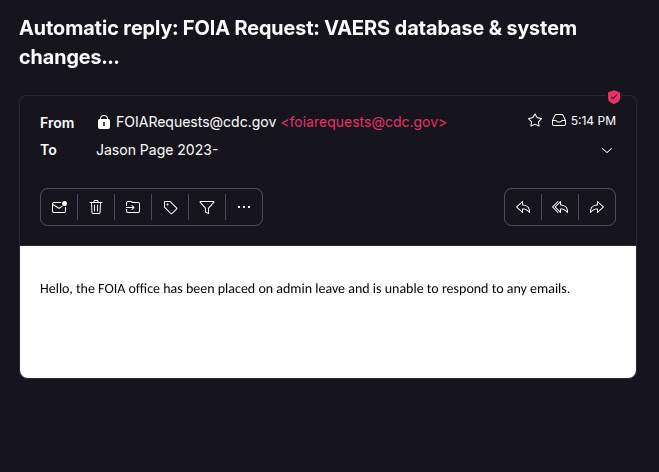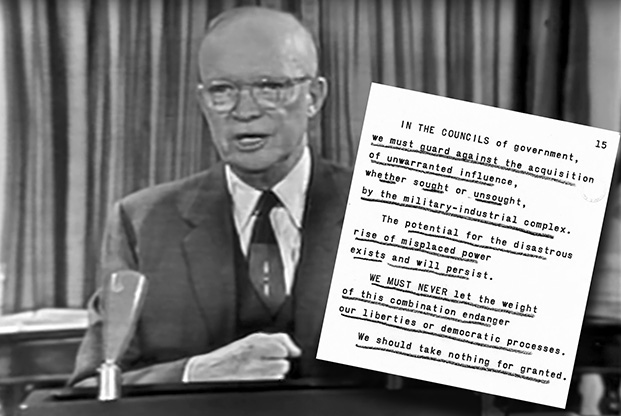
Introduction
In April 2025, the Centers for Disease Control and Prevention (CDC) shuttered its entire Freedom of Information Act (FOIA) office as part of a broader Department of Health and Human Services (HHS) reorganization under Secretary Robert F. Kennedy Jr. This unprecedented move, affecting approximately 22 staffers, has halted the CDC’s ability to process FOIA requests, leaving requesters with automated replies stating that the office is on administrative leave and unable to respond. This article explores the legality of the closure, its implications for transparency, and the prospects for FOIA requests moving forward, drawing on recent developments and expert analyses.
Background: The HHS Reorganization and FOIA Office Layoffs
On April 1, 2025, HHS initiated a mass reduction-in-force, cutting 10,000 employees across its agencies, including the CDC, Food and Drug Administration (FDA), and National Institutes of Health (NIH). The CDC’s FOIA office was entirely eliminated, with staff placed on administrative leave until their termination on June 2, 2025. Other HHS agencies saw partial FOIA staff cuts, with the FDA retaining nine employees and the NIH losing unspecified numbers. The stated goal, articulated by Secretary Kennedy, is to streamline operations by consolidating FOIA offices into a single HHS-wide office, addressing inefficiencies caused by “siloed” operations. However, the lack of a clear transition plan has raised alarms about compliance with federal transparency laws.
Legal Concerns Surrounding the Closure
The closure of the CDC’s FOIA office has sparked significant legal challenges, primarily centered on violations of the Freedom of Information Act (5 U.S.C. § 552) and the Administrative Procedure Act (APA, 5 U.S.C. § 706).
FOIA Violations
FOIA mandates that federal agencies process requests for records within 20 working days, with provisions for expedited processing in urgent cases. The CDC’s complete suspension of FOIA operations, evidenced by automated replies like the one received by requesters, appears to violate this statutory duty. A lawsuit filed by Citizens for Responsibility and Ethics in Washington (CREW) on April 4, 2025, argues that the closure is unlawful, as it prevents the CDC from fulfilling its transparency obligations. On April 26, CREW sought a preliminary injunction to compel HHS to allocate resources for timely FOIA processing.
A federal court order issued on April 9, 2025, by Judge Randolph D. Moss further underscored these concerns, warning HHS that it “may not evade [FOIA] obligations by dismissing or failing to replace the FOIA staff that is needed to do so.” This suggests that courts view the closure as a potential breach of federal law, particularly given the absence of interim measures to handle requests.
APA Challenges
Under the APA, agency actions must not be “arbitrary, capricious, an abuse of discretion, or otherwise not in accordance with law.” CREW’s lawsuit contends that the decision to fire the CDC’s FOIA staff without a functional replacement is arbitrary and undermines public access to records. Critics, including Rep. Gerry Connolly (D-VA), have argued that the lack of a detailed plan for centralization and the immediate halt of FOIA processing fail to meet APA standards for reasoned decision-making.
HHS’s Defense
HHS maintains that the consolidation will enhance efficiency by eliminating redundancies and creating a unified FOIA office. Secretary Kennedy has claimed that this aligns with his promise of “radical transparency,” asserting that HHS will proactively post documents online to reduce the need for FOIA requests. However, these claims have been met with skepticism, as no timeline or staffing details for the centralized office have been provided, and existing requests remain unprocessed.
Implications for Transparency
The closure has profound implications for public access to critical health information, particularly amid ongoing public health challenges like measles and avian flu outbreaks. The CDC, which received 1,000–2,500 FOIA requests annually, plays a vital role in providing data on vaccine safety, disease surveillance, and agency operations. The absence of a functional FOIA office risks obscuring government activities at a time when transparency is paramount.
Legal experts, such as Gunita Singh from the Reporters Committee for Freedom of the Press, have called the move “outrageous,” noting that it hampers journalists and citizens seeking insight into public health decision-making. Former CDC communications director Kevin Griffis warned that the cuts could “make it easier to hide corrupt behavior by the agency’s leadership,” further eroding public trust.
Prospects for FOIA Requests
The future of FOIA requests at the CDC and other HHS agencies depends on several factors, including legal outcomes, HHS’s implementation of the centralized office, and public pressure. Below are the key prospects and considerations:
Short-Term Outlook (Next 3–6 Months)
- Continued Delays: With the CDC’s FOIA office nonfunctional and no interim processing mechanism in place, requesters should expect significant delays. The automated reply received by users indicates that no staff are available to handle emails, and the backlog of requests is likely to grow.
- HHS FOIA Office as a Stopgap: HHS has directed requesters to contact its FOIA office at FOIARequest@hhs.gov. However, the HHS office is likely overwhelmed, given the partial cuts to other agency FOIA teams and the volume of requests (over 54,000 across HHS in 2024). Requesters may face slow responses or rejections due to capacity constraints.
- Legal Pressure: CREW’s lawsuit and potential additional litigation could force HHS to restore some FOIA functionality. If the court grants CREW’s preliminary injunction, HHS may be required to assign temporary staff or contractors to process CDC requests, potentially alleviating the backlog. A ruling is expected within weeks, given the urgency of the issue.
- Congressional Oversight: Rep. Gerry Connolly and Sens. Bill Cassidy and Bernie Sanders have demanded answers from HHS about the layoffs and their impact on transparency. A Senate hearing scheduled for April 10, 2025, could pressure Kennedy to clarify the centralization plan and expedite its implementation.
Medium-Term Outlook (6–12 Months)
- Centralized FOIA Office Implementation: HHS’s plan to consolidate FOIA operations could, if executed effectively, streamline processing and improve coordination. However, success hinges on adequate staffing and resources. The centralized office will need to handle tens of thousands of requests annually, requiring significant investment. Kennedy’s promise to launch a “FOIA Hub” for proactive document disclosure could reduce request volumes, but its feasibility remains unproven.
- Potential Backlog Challenges: Even with a centralized office, clearing the existing backlog—potentially thousands of requests—will take months. Requesters with urgent needs, such as those seeking vaccine injury data or outbreak information, may need to pursue expedited processing or legal action to secure timely responses.
- Restoration of Staff: Kennedy’s April 22, 2025, statement about “restoring all the FOIA offices” suggests possible rehiring or reassignment of staff. However, it’s unclear whether this refers to reinstating the CDC’s office or integrating former staff into the centralized structure. Without concrete action, this pledge may not translate into immediate improvements.
Long-Term Outlook (Beyond 12 Months)
- Improved Transparency (Best Case): If HHS successfully establishes a well-resourced centralized FOIA office and implements the promised FOIA Hub, request processing could become more efficient, and proactive disclosures could enhance transparency. This would align with Kennedy’s vision of “radical transparency” and potentially set a model for other agencies.
- Sustained Dysfunction (Worst Case): If the centralized office is underfunded or poorly managed, backlogs could persist, and transparency could suffer long-term. Continued legal challenges and public outcry might force Congressional intervention, such as legislation to protect FOIA staffing or funding.
- Judicial Precedent: The outcome of CREW’s lawsuit and related cases could establish legal precedents clarifying agencies’ obligations to maintain FOIA operations during reorganizations. This could strengthen protections for requesters and deter similar closures in the future.
Recommendations for Requesters
Given the uncertainty, individuals and organizations submitting FOIA requests to the CDC or other HHS agencies should consider the following:
- Redirect Requests to HHS: Submit or resubmit requests to FOIARequest@hhs.gov, clearly specifying that they pertain to CDC records. Include detailed descriptions to facilitate processing.
- Contact the FOIA Public Liaison: Reach out to the CDC/ATSDR FOIA Public Liaison, Roger Andoh, at 404-488-6277, for updates or assistance, though responses may be limited due to the office’s closure.
- Engage OGIS: File a complaint or request mediation through the Office of Government Information Services (OGIS) at ogis@nara.gov or by mail (8601 Adelphi Road, College Park, MD 20740-6001). OGIS can advocate for requesters and monitor HHS’s compliance.
- Monitor Legal Developments: Follow updates on CREW’s lawsuit and Congressional actions, as they may lead to restored FOIA functionality or alternative processing channels. News outlets like NPR and The Epoch Times provide ongoing coverage.
- Consider Litigation: For urgent requests, consult an attorney to explore filing a lawsuit to compel processing. The court’s warning to HHS suggests judges may be receptive to such cases.
Conclusion
The closure of the CDC’s FOIA office represents a significant setback for government transparency, raising serious legal questions about compliance with FOIA and the APA. While HHS’s plan to centralize FOIA operations could eventually improve efficiency, the immediate halt in processing—without interim measures—has left requesters in limbo and sparked lawsuits and Congressional scrutiny. In the short term, delays and backlogs are inevitable, but legal and political pressure may force HHS to restore functionality sooner. Over the long term, the success of the centralized office and Kennedy’s transparency promises will determine whether FOIA requests become more accessible or face ongoing obstacles. Requesters should pursue alternative channels, monitor developments, and consider advocacy or legal action to protect their right to access public records.
![]()





